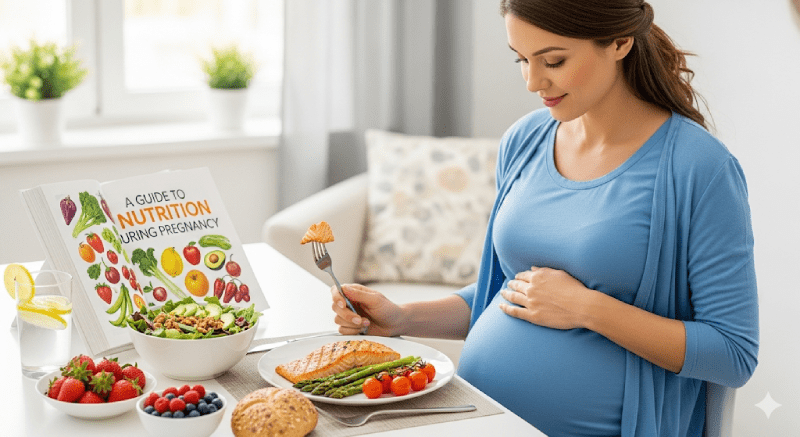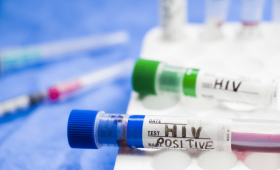Do the Foods You Eat Affect the Baby’s Gender?
No, there is no scientific evidence that the foods you eat determine the baby’s gender. The baby’s gender is determined at the moment of fertilization by the chromosome carried by the sperm from the father. If a sperm carrying a Y chromosome fertilizes the egg, the baby will be a boy; if a sperm carrying an X chromosome fertilizes it, the baby will be a girl. This is a purely genetic event, and the mother’s diet, her body’s pH balance, or specific foods she consumes cannot change this chromosomal structure. The popular beliefs on this subject are nothing more than scientifically unfounded myths.
What Foods Increase the Chance of Having a Baby Boy?
Among the public, there is a widespread belief that foods rich in sodium and potassium increase the chance of having a baby boy. According to this theory, foods like bananas, salty crackers, red meat, and potatoes create a more favorable environment for sperm carrying the Y chromosome. However, this belief has no scientific basis.
A baby’s gender is genetically determined regardless of the mother’s eating habits. It is much more important for expectant mothers to focus on a balanced diet that will support a healthy pregnancy for both themselves and their baby, rather than focusing on such beliefs.
What Foods Should Be Consumed for a Baby Girl?
In contrast to the beliefs for a baby boy, some foods are also recommended for those who want a baby girl. According to this belief, foods rich in calcium and magnesium (dairy products like milk, cheese, yogurt, and spinach, broccoli) are thought to increase the chance of a baby girl. This theory is based on the assumption that sperm carrying the X chromosome can survive in a more acidic environment. However, these claims are also not scientifically supported. The pH balance in your body does not change with diet. Instead of these myths, you should focus on eating healthy to provide the best care for yourself and your baby during this exciting process.
What Is the Relationship Between the Chinese Calendar and Diet?
The Chinese calendar is a popular gender determination method, but it has no direct relationship with diet. The Chinese calendar creates a chart by combining the age of the expectant mother and the gender of the month she conceived. According to this chart, the baby’s gender is predicted. Although this method has been used for thousands of years, it has no scientific validity. A baby’s gender is entirely based on a random chance, and there is no diet or calendar that can influence this chance. Therefore, this calendar remains only a fun prediction tool.
What Are the Popular Gender Determination Methods?
Among the public, many different methods are mentioned for determining gender before or during pregnancy. These methods include traditional methods like the Chinese calendar, Mayan calendar, salt and urine test, and ring test. However, none of these methods are based on a scientific foundation. A baby’s gender can only be definitively determined by an ultrasound or as a result of genetic tests. These popular methods are generally used for entertainment purposes, and their results are not scientifically accurate.
How Does Diet Affect Baby’s Health?
While diet does not determine the baby’s gender, it plays a vital role in its overall health. A balanced and varied diet provides all the necessary vitamins, minerals, and proteins for the baby’s brain, bone, and organ development. Folic acid, in particular, taken before and in the first weeks of pregnancy, is critically important for the baby’s neural tube development. Iron, calcium, and Omega-3 fatty acids are also indispensable for the baby’s healthy growth. By eating healthy, you can protect both yourself and your baby from possible risks.
Does My Partner’s Diet Affect Gender?
Since male sperm determines the baby’s gender, some theories suggest that the father’s diet may affect the gender. For example, there are claims that alcohol and caffeine consumption affect X or Y sperm. However, these claims have not been scientifically proven. The father’s healthy diet is important for the overall health and motility of the sperm, but it does not determine the baby’s gender. It should be remembered that gender is a genetically determined trait.

What Are the Myths and Facts?
There are many myths about baby gender. For example, it is said that the mother’s craving for sweets brings a baby girl, while cravings for sour or salty foods bring a baby boy. Or it is thought that the shape of the mother’s belly (high or low) gives information about the gender. Such beliefs are for entertainment purposes only and have no scientific basis. Your cravings during pregnancy are caused by hormonal changes and are not related to your baby’s gender. You can listen to these myths to make the process fun, but you should not take them seriously.
What Is the Importance of Pre-Pregnancy Diet?
A pre-pregnancy diet, while not determining the baby’s gender, is extremely important for a healthy pregnancy. It is recommended that women planning to conceive fill up on their folic acid and iron stores, in particular. This is critically important for the healthy development of the embryo. Also, starting a pregnancy at a healthy weight helps reduce possible risks during the pregnancy process. Spending this period resting and taking good care of yourself is a great start for a more peaceful pregnancy.
Is There a Relationship Between Weight Gain During Pregnancy and Gender?
Weight gain during pregnancy does not determine the baby’s gender. A mother’s weight gain varies depending on her pre-pregnancy weight, genetic makeup, and eating habits. Some beliefs claim that women carrying boys gain more weight, but this is a myth. Weight gain is caused by the baby’s size, the weight of the placenta, and the fluid accumulated in the body. Healthy weight gain is important for the normal course of pregnancy.
Do Specific Nutritional Supplements Affect Gender?
There are various nutritional supplements on the market that are claimed to help determine the baby’s gender. These supplements are often said to change the body’s pH balance. However, there is no scientific evidence that these products are effective in determining gender. You should be careful before using such products and consult with a professional. For a healthy pregnancy, you should only use supplements recommended by a professional.
What Are the Expectant Mother’s Cravings?
Craving something during pregnancy is a very common situation and is usually caused by hormonal changes. You may feel an increased desire for sweet, sour, salty, or spicy foods. Contrary to popular belief, this situation has nothing to do with the baby’s gender. Most of your cravings are related to the nutrients your body needs or simply to hormonal fluctuations.
Do Hormone Levels Determine Gender?
Hormone levels affect pregnancy symptoms and the mother’s general condition, but they do not determine the baby’s gender. During pregnancy, hormone levels increase, and this can cause symptoms such as morning sickness, fatigue, and mood swings. Some myths claim that hormone levels affect gender, but this is not true. Gender is definitively determined at the moment of fertilization, and hormones do not change this result.
Is There a Relationship Between Ovulation Timing and Gender?
According to one theory, the timing of ovulation may have an effect on the baby’s gender. This theory claims that having intercourse on the day of ovulation increases the chance of a baby boy, while having intercourse a few days before ovulation increases the chance of a baby girl. The reason for this is that Y sperm are faster and X sperm are more durable. However, this theory is also not supported by definitive scientific evidence and is considered only a possibility.
How Is Gender Scientifically Determined?
Scientifically, a baby’s gender is determined by its genetic makeup, and this happens at the moment of fertilization. Gender detection on an ultrasound is usually done between the 16th and 20th weeks of pregnancy when the baby’s external genitalia can be seen. The most definitive result is obtained with genetic tests like amniocentesis or chorionic villus sampling. These tests analyze the baby’s chromosomal structure and determine the gender with 100% accuracy.
What Is the Relationship Between Diet and Gestational Diabetes?
Diet is very important in preventing gestational diabetes, but it has nothing to do with gender. Gestational diabetes occurs when increased hormones during pregnancy cause insulin resistance. This condition can pose a risk to the health of the mother and baby. A balanced diet, consuming carbohydrates, protein, and fats in the right proportions helps reduce the risk of gestational diabetes. In addition, having regular check-ups during this period is of vital importance for early detection of possible risks.
What Are Healthy Snacks During Pregnancy?
Healthy snacks help you maintain your energy levels throughout pregnancy. Nuts such as hazelnuts, almonds, walnuts, yogurt, cheese, fruits, and vegetables are great options for healthy snacks. These snacks provide you with the necessary vitamins and minerals and prevent sudden hunger pangs. They also help reduce complaints such as indigestion by making digestion easier.
Does Caffeine Consumption Affect Gender?
Caffeine consumption has no effect on the baby’s gender. Although some beliefs suggest that caffeine affects the motility of sperm, these claims have not been scientifically verified. Caffeine consumption during pregnancy should be limited for the baby’s health. Consuming more than 200 mg of caffeine per day can increase the risk of low birth weight and premature birth. Therefore, it is important to keep caffeine consumption under control, regardless of gender.
How Should I Consume Nutrients?
The way you consume nutrients is important for your overall health, but it does not affect the baby’s gender. Drinking plenty of water, consuming fibrous foods, and eating small, frequent meals throughout pregnancy are beneficial for the health of both you and your baby. These habits help reduce common complaints such as heartburn, constipation, and bloating. Washing and cooking your food well will also prevent possible infection risks.
Does Stress Have an Effect on the Baby’s Gender?
Stress does not have a direct effect on the baby’s gender. However, long-term stress can disrupt your hormonal balance and negatively affect pregnancy. In a stressful period, your ovulation pattern may change or conception may become difficult. Therefore, it is very important to stay away from stress, focus on relaxation, and take good care of yourself during the pregnancy process. You can spend time on activities that relax you, and special pregnancy programs offered by companies like Cure Holiday can also help you.
Do Pregnancy Symptoms Give a Clue About Gender?
There are popular beliefs that pregnancy symptoms give a clue about gender. For example, severe morning sickness is said to be a sign of a baby girl, while milder sickness is a sign of a baby boy. Or it is thought that the mother’s skin brightening brings a baby girl. However, all of these beliefs are myths and have no scientific validity. Pregnancy symptoms are related to hormonal changes, the mother’s genetics, and her body’s reactions to pregnancy.
What Is the Effect of Herbal Supplements on Gender?
There are some herbal supplements that are claimed to be used to determine a baby’s gender. These supplements are said to change the body’s pH balance, creating a more suitable environment for sperm. However, these claims have not been scientifically proven, and the use of some herbal supplements during pregnancy can be risky. Therefore, it is vital that you consult with a professional before using any herbal supplements.
Does the Color of Urine Give a Gender Clue?
Urine color is one of the most common myths about baby gender. Among the public, light-colored urine is interpreted as a sign of a baby boy, and dark-colored urine as a sign of a baby girl. However, the color of urine is related to your body’s fluid intake, nutritional status, and hormonal fluctuations. The color of your urine can give you information about whether your body is dehydrated, but it does not give any clue about your baby’s gender.
What Is the Success Rate of Natural Methods?
The success rate of natural methods used to determine a baby’s gender (diet, timing of ovulation) is basically the same as the chance of a coin toss, which is 50%. Situations where these methods are claimed to be successful are usually coincidences. Science states that the only way to determine a baby’s gender is through genetic factors. Therefore, it is best to focus on going through this process in a healthy way rather than relying on such natural methods.

Does Losing Weight Affect Gender?
Losing weight does not have a direct effect on the baby’s gender. Being at a healthy weight before pregnancy can increase the chance of conceiving and reduce the risks that may arise during the pregnancy process. However, there is no scientific evidence that losing or gaining weight determines the baby’s gender. A healthy diet and regular exercise are the most important steps for those planning a pregnancy.
What Is the Relationship Between Diet and Preeclampsia?
Diet plays an important role in reducing the risk of preeclampsia, but this condition has nothing to do with gender. Adequate calcium and Vitamin D intake can help reduce the risk of preeclampsia. At the same time, regular exercise and staying at a healthy weight can also lower these risks. Preeclampsia is a serious complication of pregnancy and should be kept under control with regular follow-up.
What Is the Relationship Between Craving Sweets and Gender During Pregnancy?
Craving sweets during pregnancy is caused by hormonal changes and the body’s increased need for energy. Although this is thought to be a sign of a baby girl among the public, this is just a myth. Craving sweets is common, especially in early pregnancy, and is closely related to hormonal fluctuations. It has nothing to do with the baby’s gender.
Do Spicy Foods Determine Gender?
Some traditional beliefs suggest that spicy foods bring a baby boy. According to this belief, spicy foods create heat and motility in the body, making it easier for Y sperm to survive. However, this belief has no scientific basis. Consuming spicy foods may affect your digestive system, but it will not change your baby’s gender.
What Is the Relationship Between Pre-Pregnancy Detox and Gender?
Some beliefs claim that pre-pregnancy detoxes help determine the baby’s gender by changing the body’s pH balance. According to this theory, detox creates an acidic or alkaline environment, increasing the chance of certain sperm surviving. However, these claims have not been scientifically verified. Detoxes can prevent you from getting the nutrients your body needs and can be risky.
Does My Partner’s Weight Loss Affect Gender?
The father’s weight loss or gain does not determine the baby’s gender. Being at a healthy weight can increase overall sperm health, but it has no effect on the baby’s gender. Which sperm reaches the egg at the moment of fertilization is a completely random chance. Your partner adopting a healthy lifestyle is generally beneficial for pregnancy planning.
What Is the Relationship Between Diet and Childbirth Difficulties?
A balanced diet supports healthy weight gain throughout pregnancy and can reduce some difficulties that may arise during childbirth. However, diet has no direct effect on the baby’s gender or the difficulty of childbirth. Excessive weight gain or inadequate nutrition can be risky for the health of both the mother and the baby. Regular follow-up and proper nutrition are important for an easier childbirth process.
What Is the Relationship Between Diet and Allergies?
Some beliefs claim that having certain allergies or having an allergic reaction to certain foods during pregnancy affects the baby’s gender. However, there is no scientific evidence for these claims. Allergies are conditions related to the immune system and have no effect on the baby’s gender. It is important for mothers with allergies to pay more attention to their diet and stay away from allergens throughout pregnancy.
Is There a Relationship Between the Expectant Mother’s Age and Gender?
Some studies suggest that the mother’s age may have a small effect on the baby’s gender. For example, it is thought that younger mothers may have a slightly higher chance of having a baby boy, while older mothers may have a slightly higher chance of having a baby girl. However, this difference is very small and is not a determining factor. Age does not determine a baby’s gender, it can only have a slight effect on the probabilities.
Does the Psychological State of Couples Affect Gender?
The psychological state of couples does not have a direct effect on the baby’s gender. However, psychological factors such as stress and anxiety can affect the ovulation pattern and overall chance of conceiving. It is important for couples planning a pregnancy to manage stress and try to make this process enjoyable. A special trip you plan with Cure Holiday can help you relax both physically and mentally before and during pregnancy.
What Is the Most Common Misconception Among the Public?
The most common misconception about baby gender is that the foods the mother craves (sweet or sour) determine the gender. This is completely a myth and has no scientific basis. Cravings are related to hormonal changes and the body’s increased need for energy. Such beliefs, while making the pregnancy process fun, are far from scientific reality.
Is It Possible to Definitely Determine the Baby’s Gender?
Yes, it is possible to definitely determine the baby’s gender, but this is done with scientific methods, not with diet or folk methods. The gender can be definitively determined with an ultrasound examination (usually in the 16th-20th weeks) or with genetic tests. The most important thing for a healthy pregnancy is to pay attention to your diet, have regular check-ups, and enjoy this special journey.



